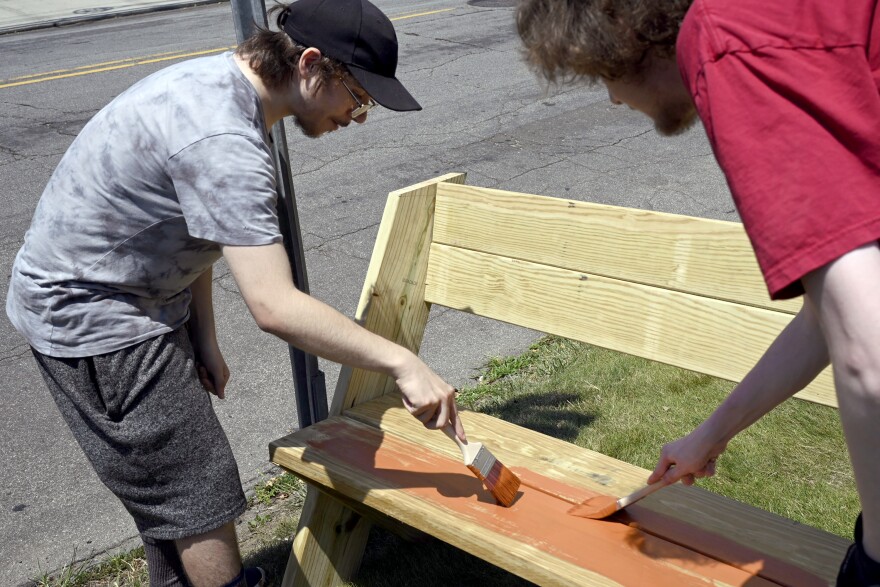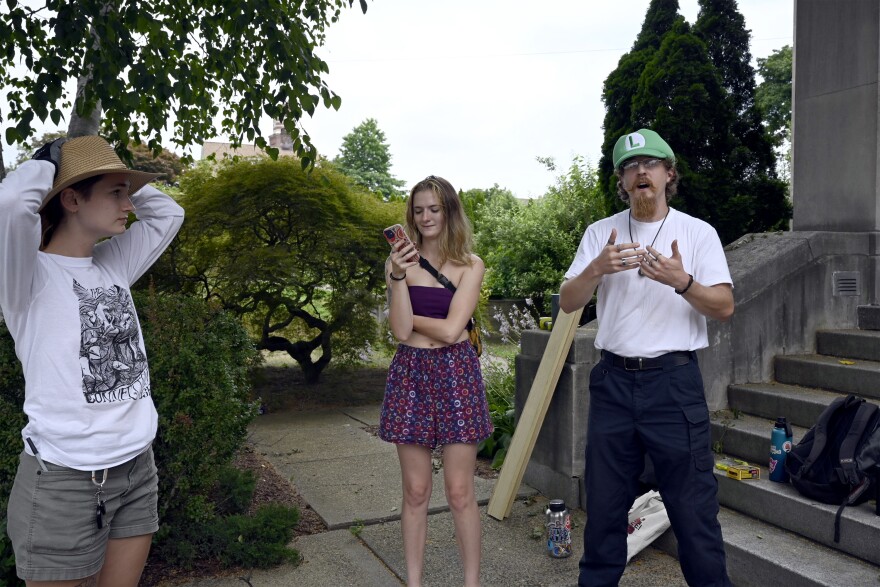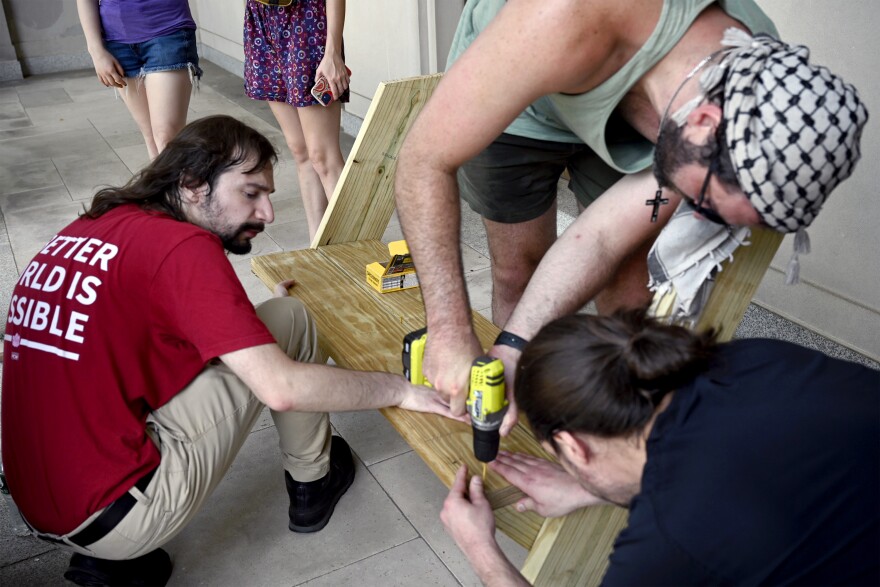Luis Lage said he often waits a long time for the bus in Bridgeport.
“You're waiting for the bus, you're standing there,” Lage said. “Sometimes the bus is late, sometimes the bus never comes. Sometimes it's smoldering, sometimes your legs are giving out because you just walked a bit.”
Lage, a Bridgeport resident and transit activist, noticed most city bus stops in Connecticut’s largest city lack shelters or seating.
He’s not alone.
Lage along with other transit activists have taken matters into their own hands and installed their own bench at a bus stop near Bridgeport Hospital in mid-July. It’s part of a guerrilla bus bench campaign, inspired by activists in Hartford.
While the benches will serve the community, activists say they also act as a promotion for the Connecticut chapter of the Democratic Socialists of America (CT-DSA) and its transit activist group, Transit Riders Union of CT, which favors free bus fares. They’re optimistic due to the recent New York City mayoral primary election, which brought renewed attention to the topic.
Seating shouldn’t be a hassle, said Lage, who also helps run Car Free BPT, an Instagram account promoting mass transit in the city. He said only a small percentage of all stops in the city have a shelter or seating of any kind.

“Bare minimum should be some furniture, some way for you to just lay down and relax,” Lage said. “It's not a big investment.”
Volunteers from the CT-DSA and the transit union met up at an Eastern Orthodox church by the hospital where they spent around an hour building a plywood bench. They say it cost around $100.
They painted the bench and taped a sign to the stop, warning riders the paint was wet. They then chained the bench to the bus sign with a bike lock. The bench was still there as of Sunday.
Chris Smith, a volunteer, noticed a woman waiting for a bus on the opposite side of the street.
“She has a walker, and thankfully, it allows her to sit,” Smith said. “But that is absolutely not common.”
Bridgeport’s bus system is run by Greater Bridgeport Transit, which also serves Trumbull and other municipalities. Of the 639 stops in the city of Bridgeport, about 5% — or 33 — have shelters, said Steven DiMichele, Greater Bridgeport Transit’s chief executive officer.
DiMichele said the transit organization has made strides in the last decade to offer shelters or benches.
“Since 2014, GBT has installed more than 51 shelters and benches at bus stops in our service area,” DiMichele said. “Now this includes a bus hub that we built at the Trumbull Mall in 2015.”
DiMichele said riders can contact GBT to request benches or shelter at stops. He said GBT is working on participating with the state on a bus shelter pilot program. The program started after the state Department of Transportation revealed only 43% of Connecticut bus riders were satisfied with bus stop conditions in a 2022 statewide study. The pilot program is expected to double the number of sheltered stops across the state during its first phase.

DiMichele said building a bus stop shelter requires several steps, from commissioning a site plan to obtaining permission from several parties, which could also include a private property owner. It typically costs around $14,000 to build a shelter, DiMichele said.
DiMichele said he’s not aware of active requests for a shelter or bench for stops near Bridgeport Hospital.
“In speaking with riders, we really recognize the appreciation they have for the amenities,” DiMichele said. “There's definitely an appetite for more. And it's good to hear directly from the riders on this so that we can understand where amenities might be needed in the community that perhaps we hadn't considered."
Lage said benches could be built quickly and cheaply.
The benches would help people experiencing health conditions, activists say. But they also see the benches as a promotional tool for DSA, which has around 950 members, and similar to business advertisements at bus stops.
“We think the benches are a good way to solidify our presence and have more people be aware of who we are,” said Fiona McElroy, co-chair of the CT-DSA.
McElroy said the organization is trying to build more local support for the union, as well as free bus fares in Bridgeport, planning for another push at free fares after similar efforts failed. McElroy said the DSA already canvasses at bus stops and the benches help build goodwill with residents.

“Even if it's just one bench at a time, you know that grows over time and more people get involved,” McElroy said.
The bench build comes as buses are in the spotlight after Zohran Mamdani, a democratic socialist, won New York City’s Democratic mayoral primary. Mamdani has focused on affordability and is calling for free city bus fares. Several members of the CT-DSA canvassed for Mamdani during the primary.
One of them, Liam Conway, said people in Bridgeport have reacted positively to Mamdani’s message – and, by extension, their own.
“It definitely is a huge inspiration in terms of the fact that it's so successful over there, we know it can be successful here, like this isn't some crazy idea that us Connecticut kids are coming up with,” Conway said.





